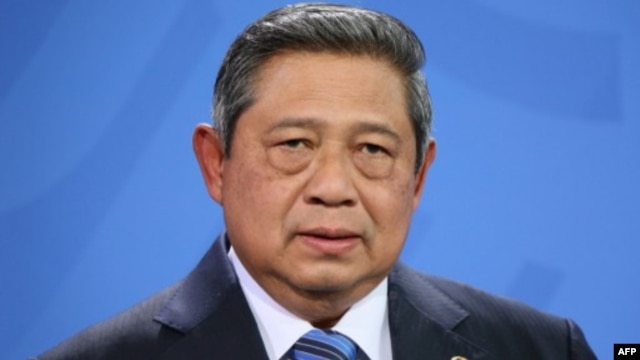
Indonesia and Burma have a lot in common. Both were once military dictatorships that are now headed by former generals. Both have made the painful transition to democracy and have seen conflicts mar the way.
Scholars and government advisers say those similarities have created an understanding that change takes time, and that has kept Indonesia from pressuring Burma to speed up the pace of reform.
"It’s quite obvious when countries start reforming the political system like Indonesia in the past, we experienced a lot of difficulties in the early stages, a lot of communal conflicts, violence and other behavior which is not conducive for democracy. What happens in Myanmar at this stage is only part of the new realities under democracy," said Teuku Faizasyah, President Yudhoyono’s aide for international affairs.
In the years after mass protests in 1998 brought down former autocratic president Suharto, Indonesia worked to ease its military out of government. At the same time Indonesia used its close ties with Burma to nudge that country’s military regime toward more openness.
Burma watchers say progress has been notable. Since taking over the government two years ago, Burma’s president, Thein Sein, has loosened controls over the media, released political prisoners and helped negotiate cease-fire agreements with rebel groups.
But ethnic and sectarian clashes have escalated in Buddhist-majority Burma, threatening those celebrated reforms.
Human rights groups and the United Nations have pressured the government to do more to lessen sectarian tensions since last June, when rioting broke out between Buddhist and Muslims in western Rakhine state. Instead, the violence has spread, forcing more than 100,000 people from their homes.
Many of those fleeing the violence have gone abroad and some have sought refuge in Indonesia. For now, Jakarta is favoring engaging with the Burmese government instead of criticizing it.
Moe Thuzar, a researcher on Myanmar at the Institute of Southeast Asian Studies in Singapore, says Indonesia’s approach is similar to the non-intervention strategy used in the Association of Southeast Asian Nations, or ASEAN.
"Indonesia, as a founding member of ASEAN, is a big proponent of quiet diplomacy, and it’s how things have worked when it comes to advising fellow member countries and to bring about commitments toward change without splashing it in the headlines."
That approach has earned Indonesia Burma’s trust. In August last year former vice president Jusuf Kalla visited Rakhine state. Then, in January, foreign minister Marty Natalagawa gained rare access to one of the areas hit hardest by last year’s anti-Muslim violence.
While Jakarta has expressed concerns about the violence spreading through Burma, however, the president’s aide Teuku Faizasyah says it’s up to the Burmese people to solve the problem.
"Certainly we’ve given our support on how to best handle the problems. We can help in providing training and other ways of bringing little understanding among ethnic groups. But in the end it must be between Myanmarese themselves," Faizasyah said.
Indonesia experienced similar internal violence following its transition to democracy and is well aware of the complexities of dealing with reform. Some analysts say that if Indonesia, which is majority Muslim, is seen to be siding with the Rohingya, it risks dividing ASEAN and could jeopardize its leading role in the regional grouping.
Indonesian companies are also looking to Burma for investment opportunities. If Jakarta starts to exert pressure, it could lose some of its leverage.
Murray Hiebert, a senior fellow on Southeast Asia at the Center for Strategic and International Studies in Washington DC, says it is important that Indonesia share experiences, provide support and moral encouragement rather than impose pressure.
"The leadership in Myanmar these days is trying to do reforms, they’re really engaged on issues like human rights, how to address communal violence. I think for a country like Indonesia to go in and try to be too pressure-some would just raise hackles," Hiebert said.
Some parliamentarians in Indonesia have talked with their counterparts in Burma about security reform and the potential for discussions with people involved in drafting the Helsinki agreement that brought an end to decades of fighting in Indonesia’s Aceh.
Burma’s legislature has undergone some of the greatest reform in the country - though much of the government is still filled with military figures. Lawmakers in Indonesia say if the parliament is more empowered, it can take a greater role in shaping Burma’s future.-Voice of America (April 20, 2013)

No comments:
Post a Comment